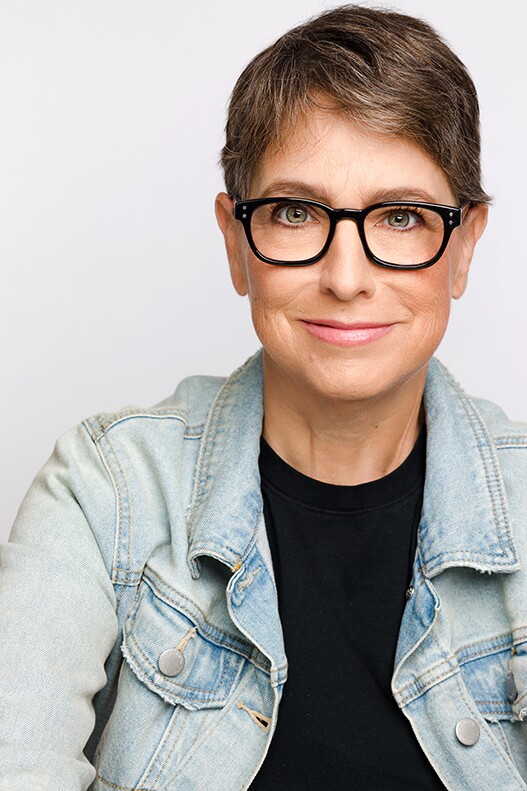A little over a month ago, Wendy Miller joined a meetup at a Whole Foods in Sherman Oaks to commiserate with her comrades-in-arms: veteran reality television producers trying to stay afloat in a fast-shifting industry.
Work had dried up for many of them over the last year or two, amid entertainment media company consolidations and the expanding dominance of streamers. A hoped-for boom in new unscripted series during the recent Hollywood strikes hadn’t materialized as it had the last time writers hit the picket lines in 2007. Netflix and other streamers don't have to worry about filling prime time slots with reality shows the same way traditional television networks have.
And while scripted writers came out of the strikes on much stronger footing, reality TV workers like Miller and her friends don't benefit.
They're not in the writers' union — their title is typically "producer" though the job often entails writing for supposedly unscripted shows — and they lack the health benefits or rescue funds that many could use right now.

Miller noted one producer who used to manage a staff of 200 people has turned to driving for Uber to make ends meet.
“There are people with multiple Emmys who are taking out credit card loans to pay for their insurance or their mortgages,” said Miller, an Emmy winner herself whose credits include The Oprah Winfrey Show and working as head of programming at Playboy TV.
Miller wanted to help out her fellow producers and presented an idea to the meetup group: What if we take all of our war stories from our times on set and turn them into a way to raise money for our friends who are suffering?
The response was enthusiastic and within minutes, the table of unemployed producers had developed a live show that they’re calling “Hollywood Horror Happy Hour,” structured in the tradition of storytelling programs like The Moth and Mortified. The inaugural show will take place Tuesday at 7 p.m. at the Fan Girl Café in West Hollywood.
Stranger than fiction
Six producers will tell behind-the-scenes, stranger-than-fiction stories, including Miller, who'll share her wild experience of being asked to start a new TV network by a pair of billionaires.
Joining her Tuesday will be Rebecca Callahan, who’s worked in reality television for more than 20 years on shows such as Millionaire Matchmaker and Dance Moms.
Hollywood Horror Happy Hour
When: 7 p.m., Tuesday, May 21
Where: Fan Girl Cafe
8157 Santa Monica Blvd., West Hollywood
How to get tickets: https://hollywoodhorrorhappyhour.com/. A $20 donation is suggested.
She’ll recount the time she produced a docuseries for a major cable network set in the Bahamas. One day, the shoot required her to swim in the Bermuda Triangle while ferrying live lobsters.

“I didn’t realize I was risking my life,” said Callahan, who was a supervising producer on the show. “I just thought it was what needed to be done.”
The adrenaline rush of working on freewheeling sets is what draws many to the profession. Callahan said while the lack of union protections is a huge downside, the pluses are the opportunities to play outside your lane.
“You get to wear a lot of hats,” Callahan said. “If you want to be a writer and a director and also in the edit bay, there’s absolutely a lot of room to do that in unscripted [shows]. I can watch a show and say I was directly responsible for a large part of what I’m watching.”
Stepping aside
These days, though, Callahan is not sure she can forge a path forward in the only industry she’s known for her adult working life. This fall, she will start graduate school to become a marriage and family therapist.
She could see herself putting her producer know-how to use and counseling people in the rough-and-tumble industry.
“There’s so much fear and anxiety right now running rampant throughout reality TV,” Callahan said. “If you’re on any of the Facebook groups, people are [saying] right and left, ‘I can’t pay my rent. I can’t feed my family. I don’t know what to do.”

A recent report by FilmLA, the nonprofit that coordinates filming permits, found that reality television production was down nearly 19% in the first quarter compared to last year. While less of a drop-off than seen in TV comedy (down nearly 52%), reality TV has had far fewer shooting days than TV dramas (down nearly 6%).
Miller, too, is not sure she will continue in unscripted television and has been wading into other ventures like founding her own company called Card to Believe which specializes in selling "oracle cards" with funny messages and images.
She theorizes that with the merging of entertainment companies, fewer unscripted series will be ordered. And when they do get green-lit, often it will be for seasons of just six to eight episodes, making it difficult for producers to have a steady paycheck.
At 60, Miller says maybe it’s time to let younger, talented producers come up the ranks and take the reins.
“I’m happy to step aside,” Miller said. “I just have to figure out a way to pay my mortgage.”

